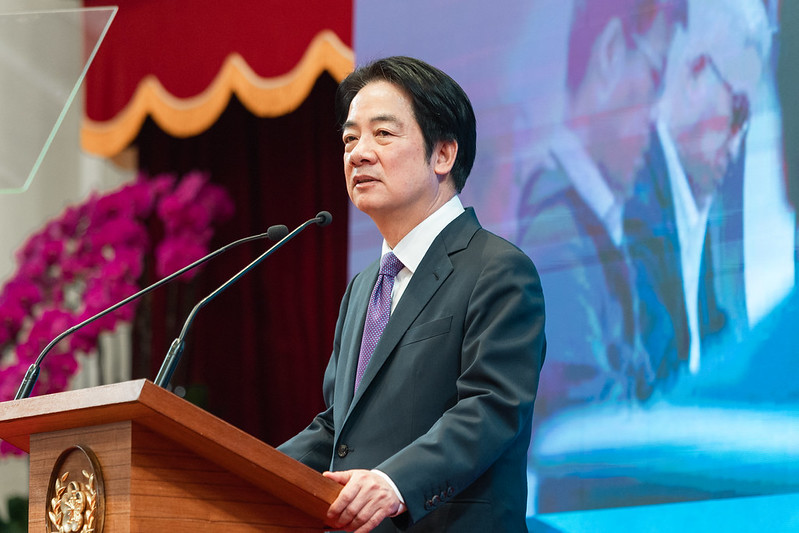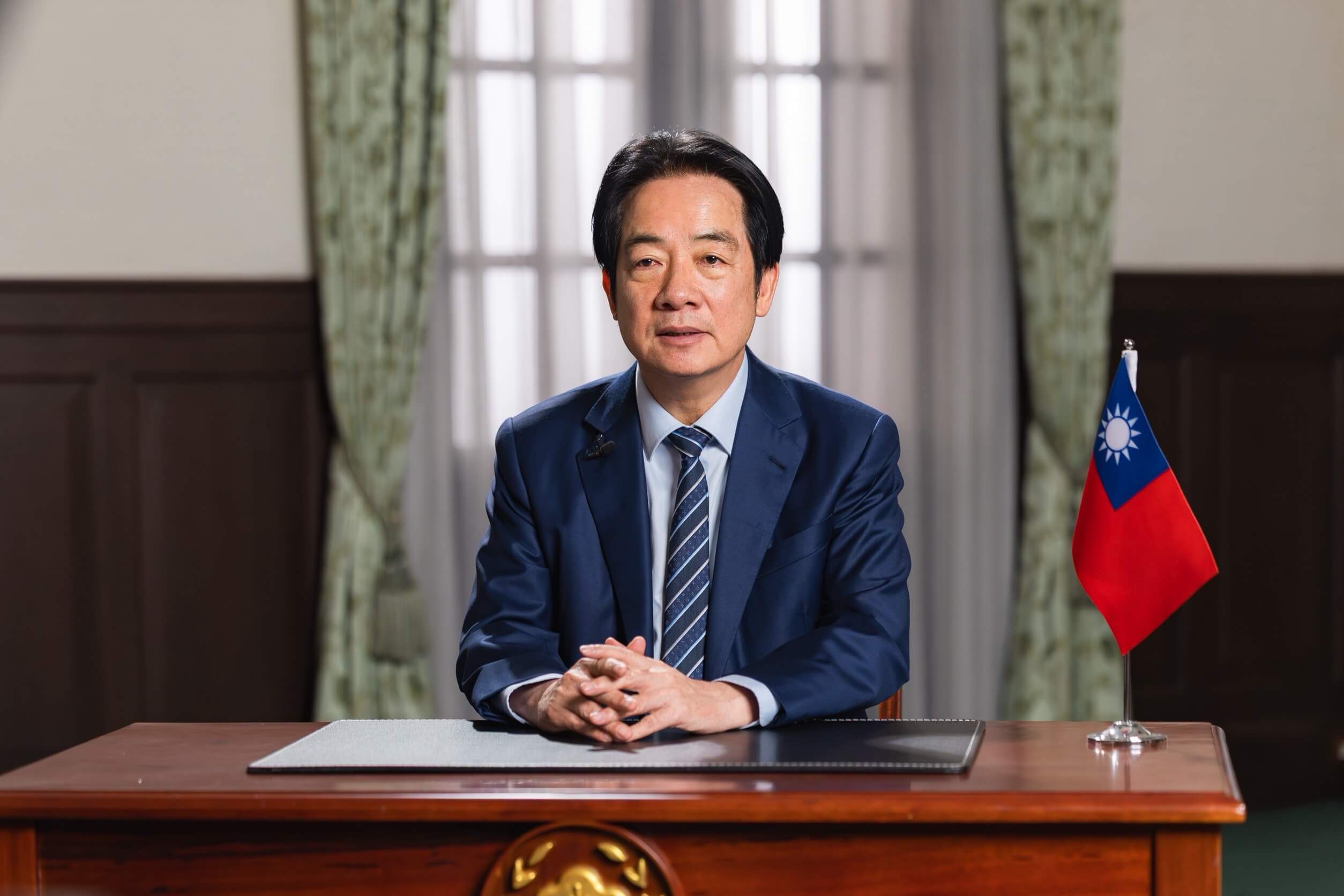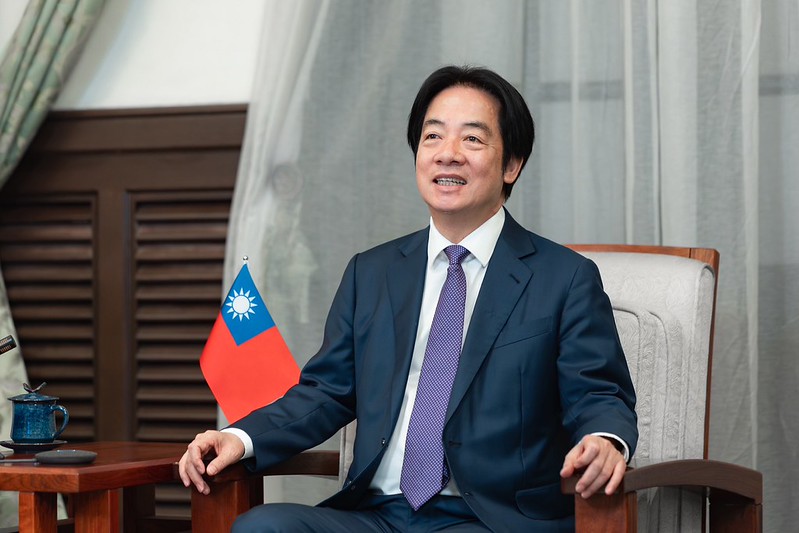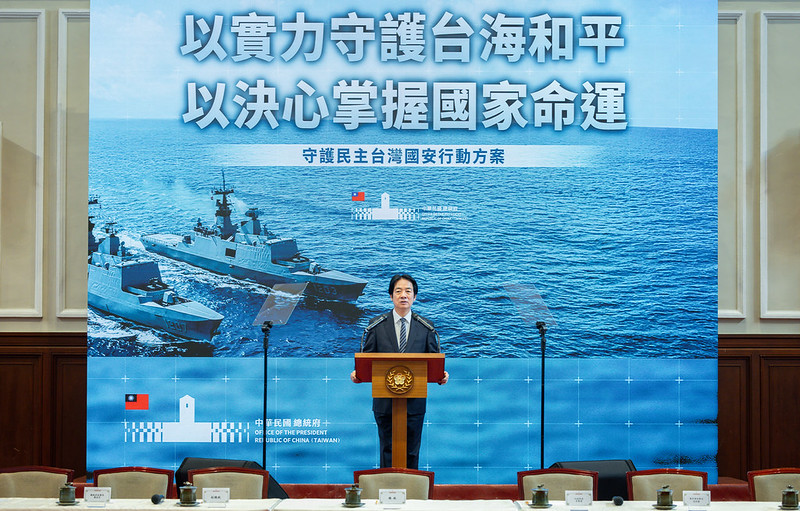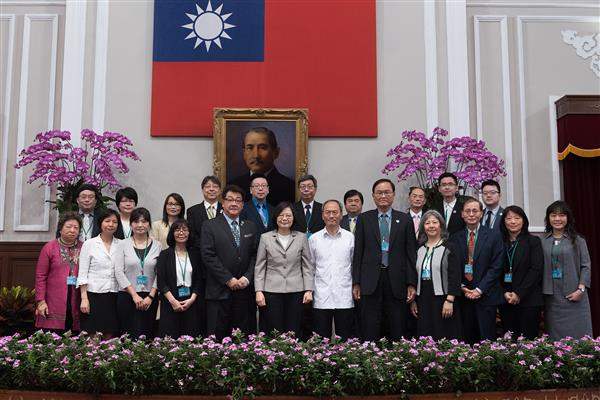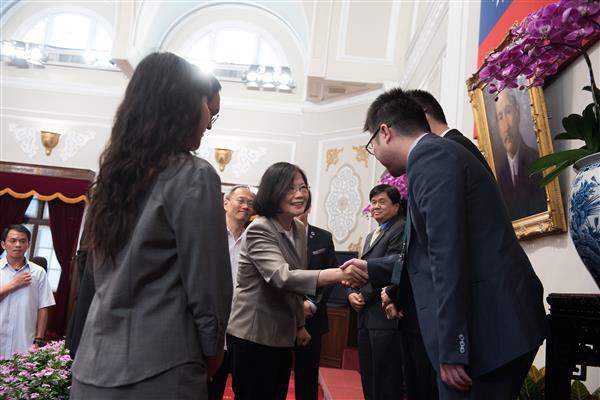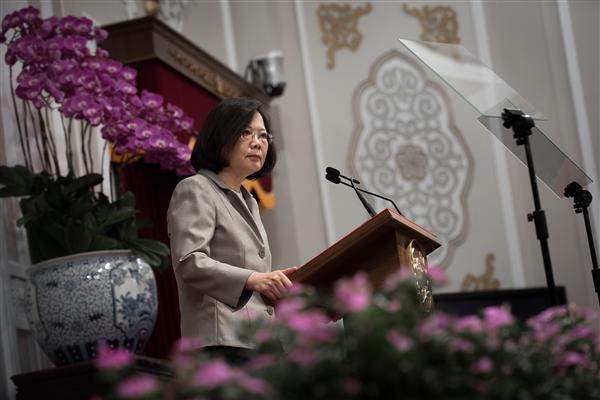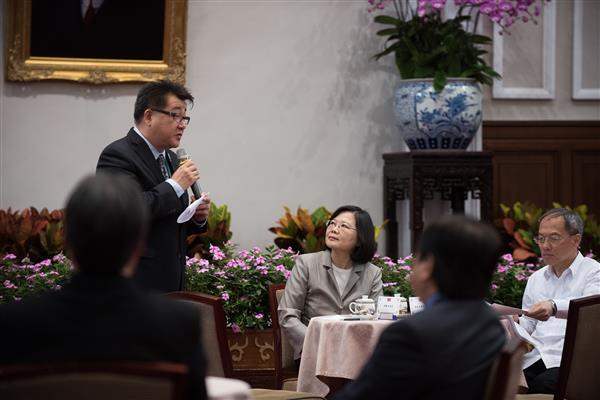News & activities
 News releases
News releases
President Tsai Ing-wen met on the morning of May 19, the eve of the one-year anniversary of her presidency, with a group of overseas-based Chinese-language media. During the meeting, the president said she had decided to use the first year of her first term in office to undertake the most difficult of reforms because, as a leader of a democratic country, she has a strong determination to carry out reforms. In the future, said the president, "the Tsai Ing-wen administration will continue working to achieve its objectives" for Taiwan. And it will continue, without regard to whatever praise or criticism might ensue, working to resolve the country's problems and lead Taiwan in a better direction.
The following is a translation of President Tsai's remarks:
First, I want to welcome our friends from overseas Chinese-language media to Taiwan. Time really does fly. Tomorrow is May 20, the one-year anniversary of my presidency. Some of you were here in Taiwan on May 20 last year, so I'd like to take this opportunity to comment on some of the changes that have taken place in Taiwan over the past year.
In my inaugural address last year I mentioned five important things that I want to do for Taiwan. In my remarks here I will briefly outline our progress on these five undertakings.
The first undertaking is to transform Taiwan's economic structure, which is the new government's highest priority. We hope to change the old production model. We want to use innovation to make Taiwan's industry more productive and competitive. Our objective is to create better job opportunities, so that people can earn higher salaries and the economy can grow.
Over the past year, Taiwan's various economic indicators have all shown signs of progress. Just a few days ago, I read a Bloomberg report entitled "Taiwan Outlook Brightened in Tsai's First Year." But I know quite well that, from the people's perspective, we have not done enough. The government will keep this fact uppermost in mind as it continues working to improve peoples' lives.
Our "5+2 industrial innovation program" has been launched. At the same time, we have also proposed the Forward-looking Infrastructure Development Program to take advantage of economic recovery to lay the foundation for Taiwan's future competitiveness.
The second undertaking is to strengthen our social safety net. Our pension reform effort, which has attracted a whole lot of attention, has progressed to the point where legislative bills are now making their way through final deliberations at the Legislative Yuan. I realize that many people are criticizing the reform process for moving too slowly and falling short of what's needed.
However, I want to remind everyone that retirement pensions have a bearing upon each person's personal interests, so this reform was sure to be very complex and difficult. I think it's been very much worth our time to spend a year working to resolve problems that have built up over decades.
We have also been working to promote social housing. A total of about 50,000 units of social housing have either been built, are currently under construction, or are being planned, so we continue to move toward achieving our goal on this front.
We are also working to launch the Long-term Care 2.0 Plan. Legislation has been amended to ensure the needed funding, and some 1,800 service centers have already begun operating. The government will help our middle-aged generations take care of their aging parents. This is our commitment to them.
The third undertaking is to work for social fairness and justice, and with this in mind I've represented the government in apologizing to the indigenous peoples. I've also established the Presidential Office Indigenous Historical Justice and Transitional Justice Committee to follow through on this matter.
To push for judicial reform, we've followed democratic procedures in preparing for the agenda of the National Conference on Judicial Reform. The process has involved certain controversies and opinions, but do not doubt our government's determination. We will stick to this out to the end. Giving up half-way into the process is not an option.
We are also working to achieve transitional justice, and have already made concrete progress toward recovering ill-gotten party assets, resolving the problem of privatization of public assets, and allowing for public access to archives and records from Taiwan's authoritarian period. A draft bill for an act governing promotion of transitional justice is now working its way through the Legislative Yuan, and I hope it will be passed during the current session so that Taiwan's democracy can take another step forward.
The fourth undertaking is to spur regional peace and stability and properly manage cross-strait relations. In this regard, we advocate maintaining the status quo. The commitments I've made have never changed.
We have entered upon a new age because the people of Taiwan want it to be a new age. I hope the leader of mainland China can correctly interpret the significance of last year's elections. Taiwan, for its part, has been continually sending out goodwill signals since last year. We need to let go of the old answer sheet, because we've got a new answer sheet with new questions . The most important task now is for the leaders of the two sides to figure out how to jointly maintain cross-strait peace and prosperity.
And finally, the fifth undertaking involves diplomatic and global issues. Over the past year, Taiwan has achieved substantive progress through exchanges with major nations and regions such as the US, Japan, and Europe. Also, I've led delegations overseas twice, and we've taken advantage of these trips to establish more stable relations with diplomatic allies in Central and South America.
Just this past Wednesday (May 17), Taiwan's Association of East Asian Relations was officially rechristened as the Association of Taiwan-Japan Relations. Japan has sent officials ranking as high as Cabinet secretary to visit Taiwan, so it is clear that Taiwan-Japan relations continue to make progress.
Efforts are also underway to increase linkages between Taiwan and other countries in the region. Toward that end, we are actively promoting the New Southbound Policy. Over the past year, the number of tourist arrivals in Taiwan from Southeast Asia has increased sharply, which shows that our work on this front is beginning to pay off.
My friends from the media, quite a few recent public opinion polls have indicated that a majority of the people in Taiwan support me, but the polls also show dissatisfaction toward me. I humbly accept these results.
I have decided to use the first year of my first term in office to undertake the most difficult of reforms. No previous president has done this. Just in terms of the impact on opinion polls, this was not the best choice. But I am not working in service of opinion polls. I serve Taiwan. Ups and downs in the polls are to be expected, and a price that must be paid.
Over the past year, the government has worked very hard for reforms. Some people feel they are being targeted by the reforms, and are displeased. Some people are not accustomed to the bickering that accompanies the process of reforms, and some are impatient at the pace of reforms.
In a democratic system, each administration is subject to term limits. We don't worry about upsetting people when we carry out action benefitting reforms. When I took office last year, I saw so many problems that no one had ever addressed before, and I told myself that we have to do everything we can to make things right.
We are sure to go through a period of relative difficulty. I would liken our situation to the traffic problems that a big, densely populated city experiences when it builds a rapid transit system. But once we've gotten through this period, we'll look back and feel that it was worth it.
Once our pension system has been reformed, an entire future generation will not need to worry about the quality of their lives after retirement.
After we've resolved the problem of ill-gotten party assets, the 2018 elections for county magistrates and city mayors will mark the first time in the history of Taiwan that ill-gotten party assets are not a factor in the elections.
Now that we've begun with concerted efforts to upgrade and transform our economy, transform our energy mix, and renew our infrastructure, many important industries all around the world will be willing to invest in Taiwan.
I want to thank my fellow countrymen who have steadfastly continued to voice support for me even amidst the growing pains we are currently experiencing. I, too, would like to see the reforms move forward more quickly, but I need to remind everyone that reform is a process in which an entire group of people—indeed, an entire nation—moves forward together. Everyone has to advance together. It's not just a matter of a few people and the government dashing quickly ahead and leaving everyone else far behind.
I know that a lot of people hope the reforms can be quickly completed, but we are a democratic country. Taiwan cannot return to its authoritarian past. If we can't put up with heated arguments, how can we embrace democracy?
I am not a dictator. I am the leader of a democratic country—a leader with a strong determination to carry out reforms. I'm now engaged in a reform effort that the past few presidents wanted to pursue but couldn't.
I will not give up on the things I've insisted on. In the previous phase, the government's main mission has been to translate our ideals and values into a concrete blueprint and planning for national policies. In the year to come, we will embark upon the next phase, a new phase in which our team's important objective is to implement policies.
I understand quite clearly that a shrewd politician will find simplistic, crowd-pleasing things to do, but a responsible politician will resolve the country's problems without regard to whatever praise or criticism might ensue. The urgency of Taiwan's problems leaves me with no other choice but to take up the responsibilities that are mine.
Let me ask my friends from the media in this room: What was Taiwan's situation prior to May of last year? Let's think about that for a minute.
At that time, our exports were falling steadily, economic prospects looked very bad, there was no funding available for long-term care services, the pension system was headed toward imminent bankruptcy, and we faced major crises in cross-strait ties as well as our foreign relations.
At that time, all the major economic forecasting institutions agreed that Taiwan would have difficulty achieving economic growth of even 1%. Now, one year later, we have avoided that sort of morass. Exports are increasing, the economic indicators have turned positive, the economy is growing, funding for long-term care has been appropriated, and the pension reform effort is moving forward.
In the area of cross-strait ties and foreign relations, our positions and values have not changed. This shows that my administration has the ability to lead Taiwan in a better direction.
The Tsai Ing-wen administration will continue working to achieve its objectives. Where the public feels we've done poorly, we will humbly accept their verdict and work to make improvements. The reform effort will not stall. That's an order I've issued to everyone in my administration.
Finally, I want once again to offer my thanks to all my friends from the media here today. In particular, I again welcome the special guests from overseas to Taiwan, and offer you all my best wishes for a successful stay in Taiwan.
Included among those in the visiting delegation were Chairman Hank Chao (趙惠普) of the Hai Hua Community Center in Washington, DC and Editor-in-Chief William Chou (周弘輝) of the Daily Chinese Herald in Australia.
